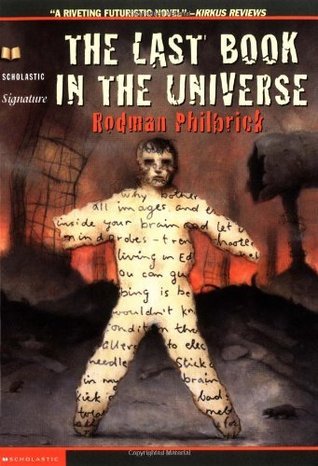TL;DR
In Rodman Philbrick's gripping novel, 'The Last Book in the Universe,' a teenager named Spaz navigates a dystopian world ravaged by disaster and mind-numbing technology, embarking on a quest with an elder to reclaim the lost beauty of life and save his sister.
What is The Last Book in the Universe about
'The Last Book in the Universe' immerses readers in a post-apocalyptic world known as the Urb, where a devastating earthquake has left society in ruins. The story follows Spaz, a young boy marked by seizures that prevent him from using mind-probes, the dominant form of entertainment that has rendered reading obsolete. Spaz's journey begins when he meets an elderly man named Ryter, who shares tales of a time before the Big Shake and the existence of a mythical place called Eden, believed to be a cure for all ailments. Together, they venture out from the bleakness of their surroundings, driven by hope and the desire to revive the world through knowledge and humanity.
The Last Book in the Universe 6 Key Takeaways
Introduction to Spaz's world.
Spaz lives in a dystopian society inundated with violence and poverty where people rely on mind-probes for entertainment, leading to a collective ignorance of books and literature.
Meeting with Ryter.
Spaz encounters Ryter, who reveals the stories of the past and inspires Spaz to seek a better future, despite the societal apathy surrounding him.
The quest for Eden.
Spaz and Ryter set off on a perilous journey to find Eden, a place rumored to possess the power to heal and restore, driven by Spaz's desperation to save his dying sister.
Confrontation with the mob.
As they near their destination, they face dangers from the city's gangs, showcasing the brutality of their world and the stakes of their mission.
Ryter's sacrifice.
In a tragic climax, Ryter is killed by mob members, symbolizing the destruction of knowledge and the past, while imparting a critical message to Spaz.
Spaz becomes the last book.
Before dying, Ryter tells Spaz that he is the last book in the universe, implying the importance of preserving stories and knowledge amidst societal decay.
Top The Last Book in the Universe Quotes
- 'I am the last book in the universe, and that’s worth something.'
- 'The world used to be beautiful, and we can bring it back if we try.'
Who should read The Last Book in the Universe?
'The Last Book in the Universe' is ideal for middle-grade readers aged 9-12 who enjoy fast-paced action and thought-provoking narratives. It inspires young minds to appreciate literature, resilience, and the importance of human connections in overcoming adversity.
The Last Book in the Universe Best Reviews
- 'Philbrick's masterful storytelling and vivid descriptions bring a haunting yet hopeful world to life, reminding readers of the power and necessity of literature in an increasingly digital age.' - School Library Journal
- 'A thrilling adventure that captivates young readers, 'The Last Book in the Universe' is a poignant reminder of the value of books and human connection.' - BookPage
People also liked these summaries
The Last Book in the Universe FAQs
What age group is 'The Last Book in the Universe' suitable for?
'The Last Book in the Universe' is suitable for readers aged 9-12, engaging young minds with its adventurous story and relevant themes.
What is the main message of the book?
The main message of the book revolves around the importance of literature, human connection, and the fight against societal ignorance and apathy.
